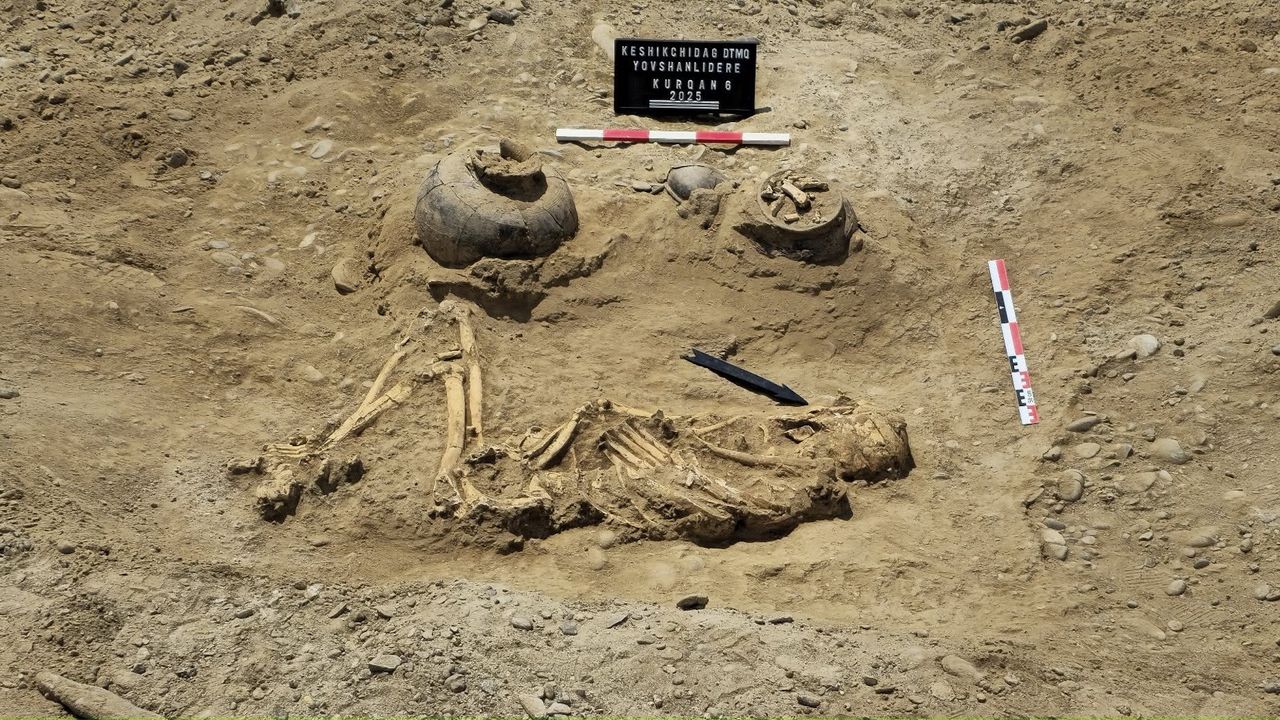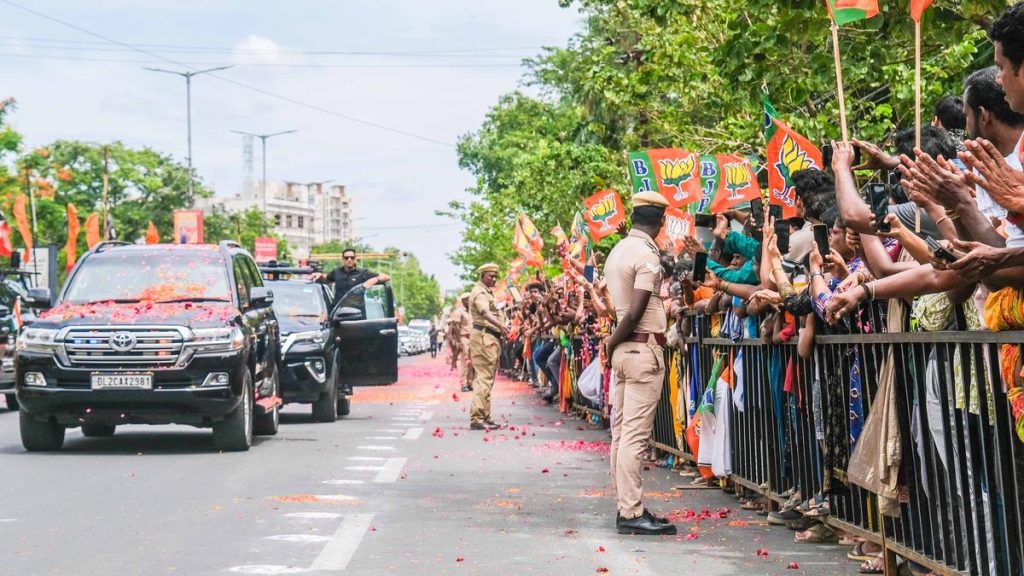Now Reading: 3,800-Year-Old Warrior Burial with Unique Spearhead Discovered in Azerbaijan
-
01
3,800-Year-Old Warrior Burial with Unique Spearhead Discovered in Azerbaijan
3,800-Year-Old Warrior Burial with Unique Spearhead Discovered in Azerbaijan

Quick Summary
- Archaeologists in Azerbaijan have discovered a 3,800-year-old burial site of a warrior at the Keshikchidagh historical and cultural reserve near Azerbaijan’s western borders with Georgia and armenia.
- The burial mound, known as a kurgan, spans more than 90 feet (28 m) across and is over 6.6 feet (2 m) tall.
- Skeletal analysis revealed the buried man was approximately 6 feet, 7 inches (2 meters) tall, indicating his prominence during the Middle Bronze Age (~1800 B.C.).
- The tomb’s interior was divided into three sections: one holding the body with weapons like a bronze spearhead; another containing pottery vessels; and an empty section possibly symbolizing beliefs in an afterlife.
- Grave goods included decorated earthenware jugs containing animal bones (“food for the afterlife”), bronze adornments on one ankle, glass beads, obsidian tools, and other artifacts.
- Archaeologists surmise that due to it’s elaborate style and rare four-pronged spearhead design found in his hand, this man may have been a military leader of significant importance in his time.
Indian Opinion Analysis
This discovery underscores ancient cultures’ rich traditions surrounding burials-similar to India’s various prehistoric mound burial sites like megalithic dolmens or cairns that reflect beliefs about life after death. It also points to cross-cultural phenomena of reverence for warriors embodied in opulent burials. For India’s archaeological community engaged extensively with Bronze Age studies of Indus Valley Civilization regions (~3300-1300 B.C.), such findings abroad amplify global contextual insights into early societies constructing complex social hierarchies.
India might benefit from collaborative research partnerships with archaeological entities excavating sites like Keshikchidagh to enhance scholarship around shared themes of warfare organization or ritual practices during prehistory-a focus vital for understanding interconnected ancient civilizations along Eurasian trade routes.

























